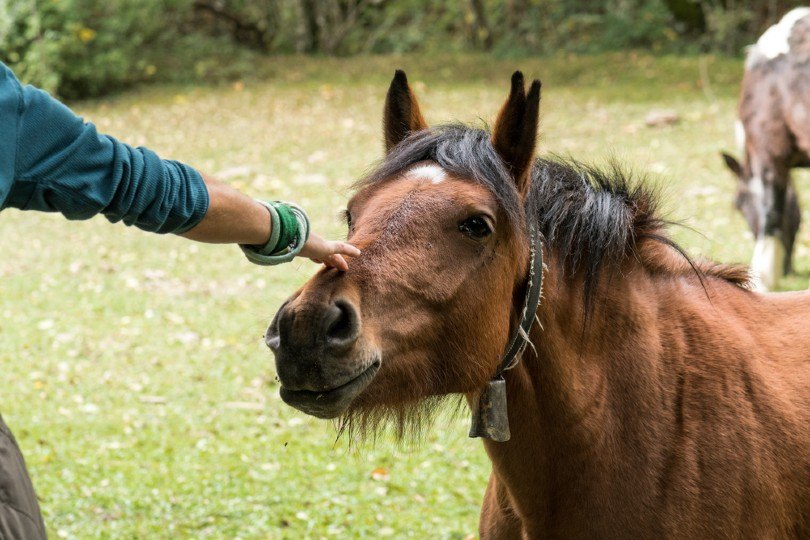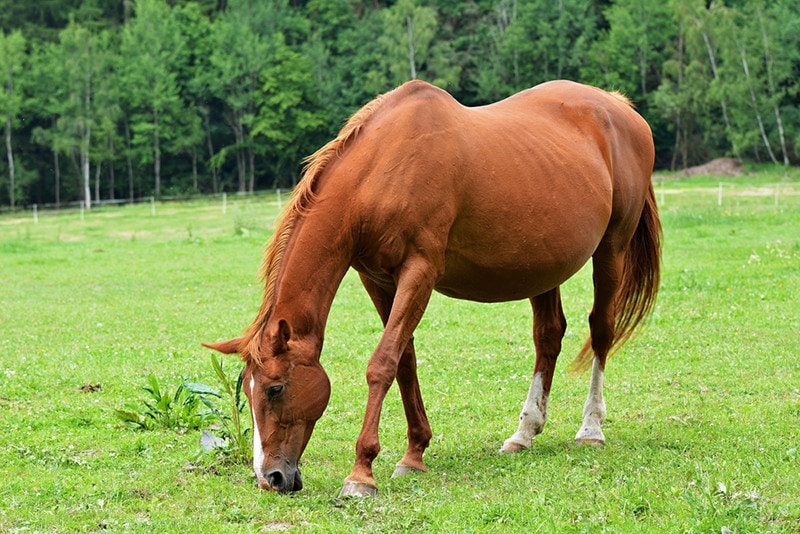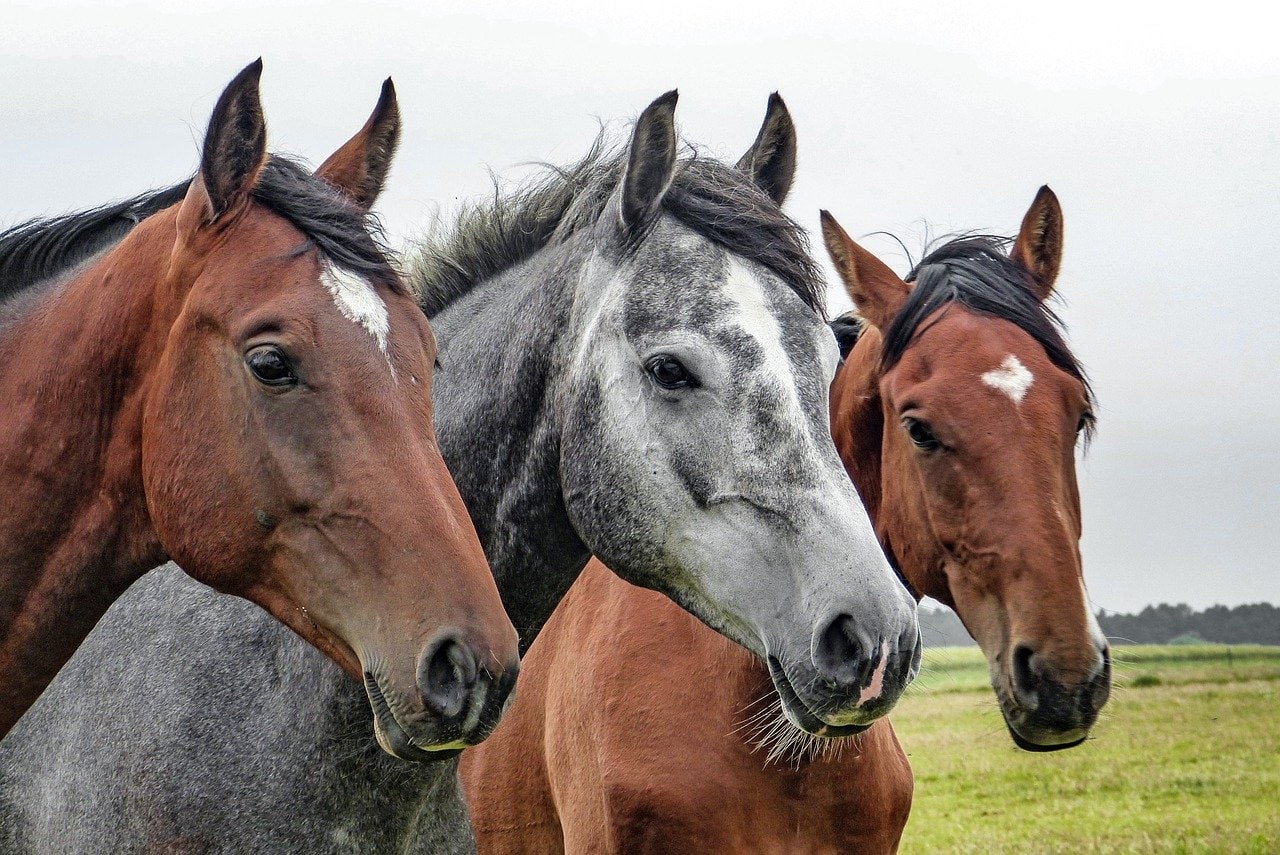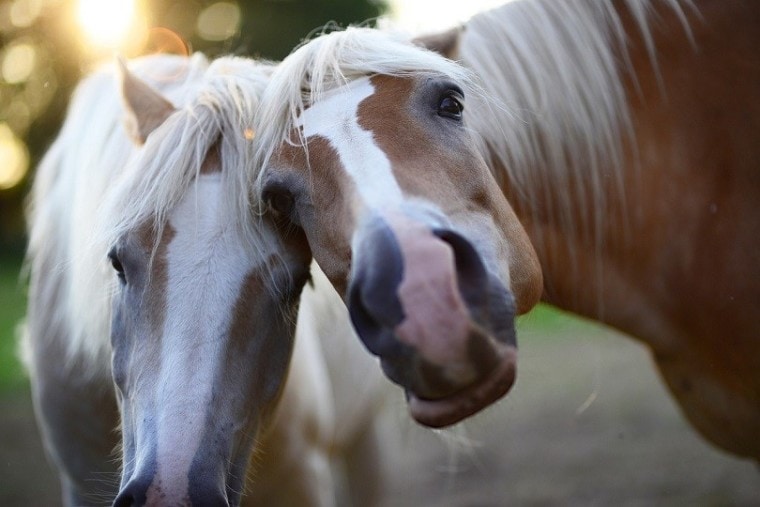
As most horse lovers know, horses can’t vomit. Although many people know this fact to be true, very few know why. After all, most other animals—including mammals, amphibians, reptiles, and birds—can vomit. Why not horses?
In this article, we are going to answer that question for you. The answer requires a breakdown of the horse’s anatomy so that you can understand why its body cannot throw up. We will also explain what this means for you, a horse owner. Let’s get started.
Can Horses Vomit?
Most animals throw up whenever they eat something that upsets their stomach or is poisonous. Other animals have adaptations that allow them to regurgitate food, which is a passive process that transfers food back up to their mouth. Animals regurgitate to either re-chew food to further break it down (this is commonly seen in ruminants, such as cattle, sheep, and goats) or to feed their young. Horses can’t vomit or regurgitate.
Why Not?
There are three reasons why a horse lacks the ability to regurgitate or vomit. Let’s explore each reason to better understand their unique characteristics.
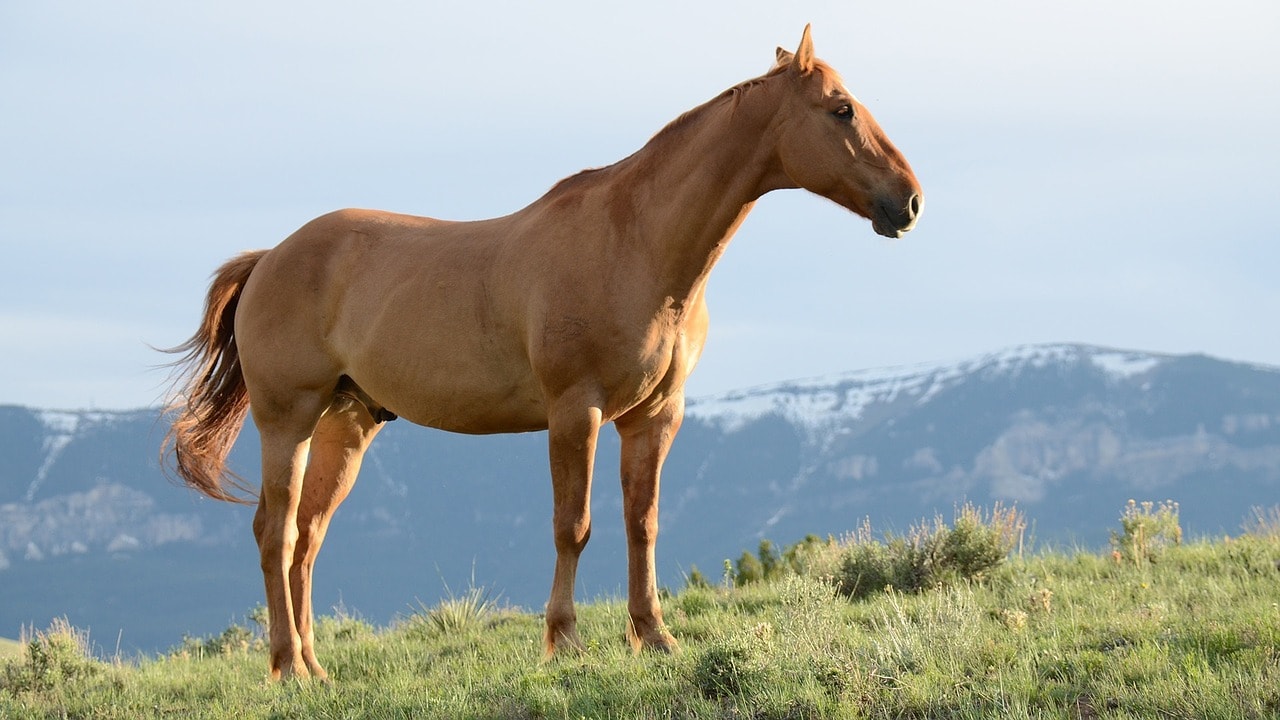
1. No Reverse Peristalsis
The muscles that line the digestive tract have the ability to undergo an involuntary contraction, known as peristalsis. This is a rhythmic contraction that slowly moves anything that’s swallowed from the esophagus through the rest of the digestive tract until the food is either absorbed or eliminated from the body via the anus.
Because peristalsis moves food in a single direction, it must be able to reverse itself to move food down in the digestive tract back up toward the esophagus and eventually the mouth to be expelled from the body. This process is known as reverse peristalsis. Animals with bodies that can perform reverse peristalsis can vomit or regurgitate their food.
Horses have peristalsis; however, the muscles that line their esophagus do not have the ability to undergo reverse peristalsis.
2. Cardiac Sphincter Strength
When food travels along the esophagus, it eventually reaches the stomach. The stomach has two sphincters (at its point of entry and exit). The sphincter at the point of entry is known as the cardiac sphincter. The sphincter at the point of exit is known as the pyloric sphincter. These sphincters are muscular valves. In animals that can vomit, the pyloric sphincter can exert more force than the cardiac sphincter and, therefore, it can easily send ingesta back up to where it came from.
Things are different for horses. Their cardiac sphincter is much stronger than the pyloric sphincter, which means that the pyloric sphincter does not have the ability to send ingesta back up to their esophagus.
3. Unique Anatomy
The angle at which a horse’s esophagus meets their stomach is very steep. Once their stomach is full of food and distended, this angle becomes even more steep and further tightens their cardiac sphincter to not allow any food to travel back up.

Why Did Horses Evolve to Not Vomit?
On the surface, it seems counterproductive to survival that a horse cannot vomit. After all, vomiting offers animals an option to expel something poisonous or noxious out of their body before it gets absorbed into their system.
It turns out that, for horses, not being able to vomit does have an evolutionary purpose. If a horse could vomit, they might not be able to run away from a predator on a full stomach. Therefore, the ability to not vomit might be perceived as advantageous, as this would allow the horse to run as fast as possible without the risk of vomiting from overexertion. This ties in with the fact that horses are obligate nasal breathers, as they cannot breathe through their mouths.
Another plausible explanation is that they evolved this inability in order to survive periods of famine; the inability to expel anything they’ve eaten means that everything they’ve eaten will be digested, and nothing would go to waste.

Are There Reported Cases of a Horse Vomiting?
If a horse does ever vomit or regurgitate, it’s likely because they are gravely ill with a very poor prognosis and may only do so if the cardiac sphincter of the stomach has been severely compromised. In this case, the horse likely wouldn’t last long after the vomit or regurgitation is observed.
What Does This Mean for a Horse Owner?
Because horses don’t vomit, you might be wondering if this requires you to pay extra attention to your horse. After all, it does not have the means to throw up in the case that they should ingest something toxic. Should you be on the lookout?
The inability to vomit is a very serious issue for a horse dealing with colic. For example, if there is an obstruction along the horse’s digestive tract, the consequences would be very dire. Because horses cannot vomit, the obstruction might lead to an extensive buildup of fluid, gas, and ingesta in their stomach. Left untreated, the stomach may eventually rupture. This is why veterinarians pass a nasogastric tube when treating a horse with colic; the tube can help relieve pressure on the stomach and save the horse’s life.
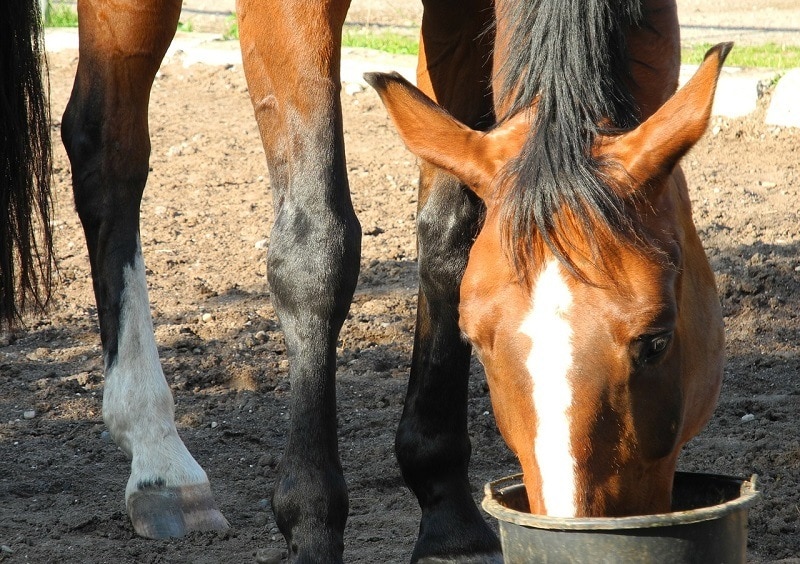
Final Thoughts
Even though horses are built like us in many ways, one way that they are different is that they do not have the ability to throw up. This is largely due to the fact that their esophagus and stomach sphincters are very different from ours, resulting in the impossibility of vomiting or regurgitation.
Horses likely evolved this way because of the need to escape predators while running at high speeds on a full stomach. As a horse owner, though, you would want to make sure that your horse is promptly seen by a veterinarian during a colic episode, as their inability to vomit can be a serious hindrance in this situation.
Check out some of our top-trending horse articles:
- 7 Best Oils for Horse Coats – Reviews & Top Picks
- How to Grow Quality Hay for Your Horse (Tips & Tricks)
- How to Choose the Right Bit for Your Horse
Featured Image Credit: siebeckdotcom, Pixabay




